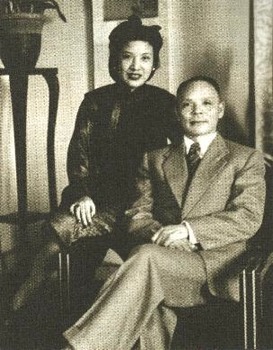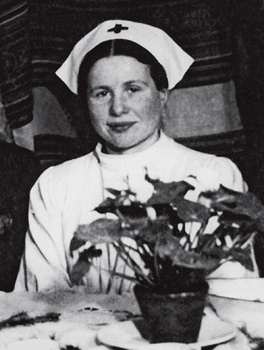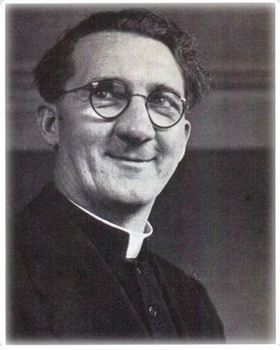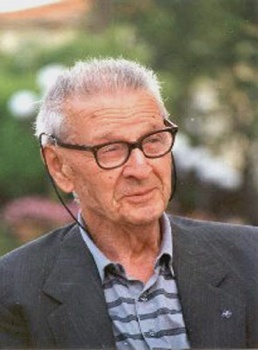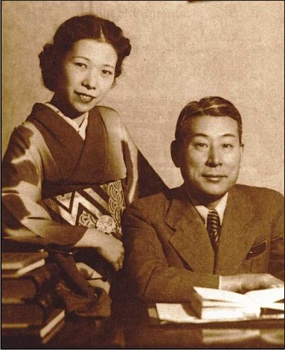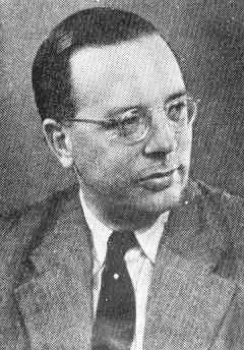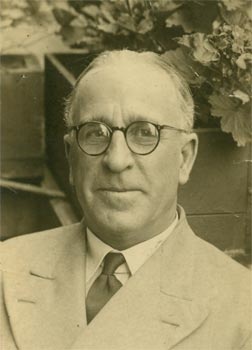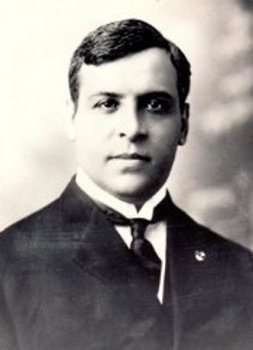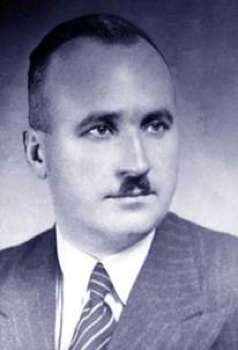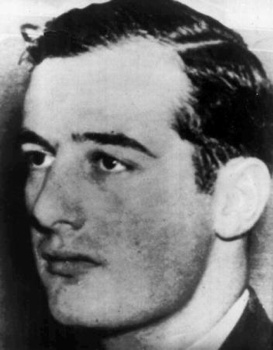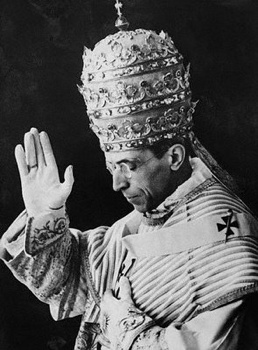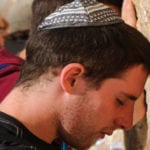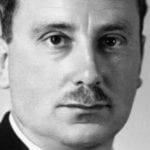 Our World
Our World  Our World
Our World  Crime
Crime 10 Dark Details of the “Bodies in the Barrels” Murders
 Animals
Animals The Animal Kingdom’s 10 Greatest Dance Moves
 Movies and TV
Movies and TV 10 Box Office Bombs That We Should Have Predicted in 2025
 History
History 10 Extreme Laws That Tried to Engineer Society
 History
History 10 “Modern” Problems with Surprising Historical Analogs
 Health
Health 10 Everyday Activities That Secretly Alter Consciousness
 History
History Top 10 Historical Disasters Caused by Someone Calling in Sick
 Animals
Animals 10 New Shark Secrets That Recently Dropped
 Movies and TV
Movies and TV 10 Forgotten Realities of Early Live Television Broadcasts
 Our World
Our World 10 Places with Geological Features That Shouldn’t Exist
 Crime
Crime 10 Dark Details of the “Bodies in the Barrels” Murders
 Animals
Animals The Animal Kingdom’s 10 Greatest Dance Moves
Who's Behind Listverse?

Jamie Frater
Head Editor
Jamie founded Listverse due to an insatiable desire to share fascinating, obscure, and bizarre facts. He has been a guest speaker on numerous national radio and television stations and is a five time published author.
More About Us Movies and TV
Movies and TV 10 Box Office Bombs That We Should Have Predicted in 2025
 History
History 10 Extreme Laws That Tried to Engineer Society
 History
History 10 “Modern” Problems with Surprising Historical Analogs
 Health
Health 10 Everyday Activities That Secretly Alter Consciousness
 History
History Top 10 Historical Disasters Caused by Someone Calling in Sick
 Animals
Animals 10 New Shark Secrets That Recently Dropped
 Movies and TV
Movies and TV 10 Forgotten Realities of Early Live Television Broadcasts
10 People Who Saved Jews During World War Two
During World War Two, many individuals from many countries risked their lives to save various minorities, especially Jews, from the horrors of the Holocaust. This list commemorates 10 of them. All these individuals were made ‘Righteous Among the Nations’ by the Israeli government in honor of what they had done.
Feng-Shan Ho was a Chinese diplomat who saved approximately 2,000 Jews during the early years of World War II. Ho was consul-general of the Chinese embassy in Vienna during the Austrian annexation. After the “Kristallnacht” in 1938, the situation for the almost 200,000 Austrian Jews got rapidly more difficult, but in order to leave the country they had to provide proof of emigration, usually a visa from a foreign nation or a valid boat ticket. This, however, was difficult and the Evian Conference, in 1938, where 32 countries had failed to take a stand against Nazi Germany, made this even more complicated. Acting against orders of his superior, Ho, for humanitarian reasons, started to issue visas to Shanghai. He continued to issue these visas until he was ordered to return to China in May 1940. After the war, Ho settled in San Francisco where he died in 1997. He was made ‘Righteous Among the Nations’ in 2001 for his efforts to save thousands of Austrian Jews.
Irena Sendler was a Polish Catholic social worker. During World War II, she was a member of the Polish Underground and the ?egota Polish anti-Holocaust resistance in Warsaw. She helped save 2,500 Jewish children from the Warsaw Ghetto by providing them with false documents and sheltering them in individual and group children’s homes outside the ghetto. As an employee of the Social Welfare Department, she had a special permit to enter the Warsaw Ghetto, to check for signs of typhus, something the Nazis feared would spread beyond the ghetto. During these visits, she wore a Star of David as a sign of solidarity with the Jewish people and so as not to call attention to herself. She cooperated with the Children’s Section of the Municipal Administration, linked with the RGO (Central Welfare Council), a Polish relief organization tolerated under German supervision. She organized the smuggling of Jewish children from the ghetto, carrying them out in boxes, suitcases and trolleys. Under the pretext of conducting inspections of sanitary conditions during a typhoid outbreak, Sendler visited the ghetto and smuggled out babies and small children in ambulances and trams, sometimes disguising them as packages. Despite being tortured and imprisoned by the Nazis, Sendler continued to do all she could to help Jewish children in Warsaw. In 1965 she was made ‘Righteous Among the Nations’, and died in 2008.
Hugh O’Flaherty was an Irish Catholic priest who saved about 4,000 Allied soldiers and Jews in Rome during World War II. O’Flaherty used his status as a priest and his protection by the Vatican to conceal 4000 escapees – Allied soldiers and Jews – in flats, farms and convents. Despite the Nazis desperately wanting to stop his actions, his protection by the Vatican prevented them officially arresting him. He survived an assassination attempt and, along with the Catholic Church, saved the majority of Jews in Rome. He died in 1963.
Giorgio Perlasca was an Italian who helped save thousands of Hungarian Jews from the Holocaust by issuing them fake passports to travel to neutral countries. Despite fighting alongside Franco in the Spanish Civil War, Perlasca became disillusioned with Fascism and escaped from Italy to the Spanish embassy in Budapest in 1944, where he became a Spanish citizen on account of his war experience. While there he worked with Spanish diplomat Angel Sanz Briz in creating fake passports to smuggle Jews out of the country. When Sanz Briz was removed from his post, Perlasca pretended to be his substitute so that he could continue printing false passports. He also personally sheltered thousands of Hungarian Jews while they were waiting for their passports. It is estimated he saved over 5,000 Jews from the Holocaust. After the war, he returned to Italy where he lived in obscurity until he was contacted in 1987 by a group of Hungarian Jews he had rescued, and his remarkable story became public. He died in 1992.
Chiune Sugihara was a Japanese diplomat, serving as Vice Consul for the Japanese Empire in Lithuania. Soon after the occupation of Lithuania by the Soviet Union, he helped an estimated 6,000 Jews leave the country by issuing transit visas to Jewish refugees so that they could travel to Japan. Most of the Jews who escaped were refugees from Poland or residents of Lithuania. From July 31 to August 28 1940, Sugihara began to grant visas on his own initiative. Many times he ignored the requirements and arranged the Jews with a ten-day visa to transit through Japan, in direct violation of his orders. Given his inferior post and the culture of the Japanese Foreign Service bureaucracy, this was an extraordinary act of disobedience. He spoke to Soviet officials who agreed to let the Jews travel through the country via the Trans-Siberian railway at five times the standard ticket price. Sugihara continued to hand-write visas (reportedly spending 18–20 hours a day on them, producing a normal month’s worth of visas each day) until September 4, when he had to leave his post before the consulate was closed. By that time he had granted thousands of visas to Jews, many of them heads of household who could take their families with them. According to witnesses, he was still writing visas while in transit in hotel and after boarding the train, throwing visas into the crowd of desperate refugees out the train’s window even as the train pulled out. Sugihara returned to Japan where he lived in obscurity until he was made ‘Righteous Among the Nations’ by Israel in 1985. He died the following year.
Georg Ferdinand Duckwitz was a German member of the Nazi party who worked as a special envoy to Nazi occupied Denmark. Although Danish Jews were initially treated quite favourably by the Nazis, by 1943 it was planned that they would be rounded up and deported to concentration camps. Risking his career, Duckwitz made a secret visit to neutral Sweden where he convinced Prime Minister Per Albin Hansson to allow Danish Jewish refugees to escape to Sweden. He then went to Denmark and notified Danish politician Hans Hedtoft about the deportation. Hedtoft warned senior rabbis in the country, and in the following two months, over 6,000 Jews were ferried secretly to Sweden in boats. After his actions, Duckwitz returned to his duties as a Nazi official, refusing to reveal what he had done in case of losing his job or worse. After the war, he continued working as West Germany’s ambassador to Denmark. He died in 1973. Due to his actions, it is estimated that around 99% of Denmark’s Jews survived the Holocaust.
Frank Foley was a British secret service agent estimated to have saved 10,000 Jews from the Holocaust. In his role as passport control officer he helped thousands of Jews escape from Nazi Germany. At the 1961 trial of former ranking Nazi Adolf Eichmann, he was described as a “Scarlet Pimpernel” for the way he risked his own life to save Jews threatened with death by the Nazis. Despite having no diplomatic immunity and being liable to arrest at any time, Foley would bend the rules when stamping passports and issuing visas, to allow Jews to escape “legally” to Britain or Palestine, which was then controlled by the British. Sometimes he went further, going into internment camps to get Jews out, hiding them in his home, and helping them get forged passports. He died in 1958.
Aristides de Sousa Mendes was a Portuguese Diplomat who ignored and defied the orders of his own government for the safety of war refugees fleeing from invading German military forces in the early years of World War II. Between the June 16 and June 23 1940, he frantically issued Portuguese visas free of charge, to over 30,000 refugees seeking to escape the Nazi terror, 12,000 of whom were Jews. De Sousa Mendes worked in the Portuguese consulate in Bordeaux, France, where despite explicit orders not to give visas to “foreigners of indefinite or contested nationality; the stateless; or Jews expelled from their countries of origin”. De Sousa Mendes sporadically began printing Portuguese visas illegally as early as 1939, but it wasn’t until mid June 1940, when Portugal’s status was expected to change from ‘neutral’ to ‘non-belligerent’ which would make Portugal more allied to Nazi Germany. Between June 16 and June 23, de Sousa Mendes began frantically issuing visas, along with his friend, the Rabbi Chaim Kruger, to refugees waiting in line. De Sousa Mendes travelled to the border town of Irun on June 23, where he personally raised the gate to allow disputed passages into Spain to occur. It was at this point that Ambassador Teotónio Pereira arrived at Irun, declared Sousa Mendes mentally incompetent and invalidated all further visas. An Associated Press story the next day reported that some 10,000 persons attempting to cross over into Spain were excluded because authorities no longer granted recognition to their visas. As de Sousa Mendes continued the flow of visas, Dictator Salazar sent a telegram on June 24 recalling him to Portugal, an order he received upon returning to Bordeaux on June 26 but followed only slowly, not arriving in Portugal until July 8. Along the way he issued Portuguese passports to refugees now trapped in occupied France, saving them by preventing their deportation to concentration camps. After the war, de Sousa Mendes lived in destitute poverty, dying in 1954.
Dimitar Peshev was the Deputy Speaker of the National Assembly of Bulgaria and Minister of Justice during World War II. He rebelled against the pro-Nazi cabinet and prevented the deportation of Bulgaria’s 48,000 Jews. Bulgaria was a strong supporter of the Holocaust, rounding up thousands of Jews in occupied Thrace and Macedonia to be deported to death camps. However, when it came to its own Jewish citizens, the government faced strong opposition from Peshev and the Bulgarian Orthodox Church. Although Peshev had been involved in various anti-Semitic legislation that had passed in Bulgaria during the early years of the War, the decision by the government to deport Bulgaria’s 48,000 Jews on March 8 1943 was too much for Peshev. After being informed of the deportation, Peshev tried several times to see Prime Minister Bogdan Filov but the prime minister refused. Next, he went to see Interior Minister Petur Gabrovski insisting that he cancel the deportations. After much persuasion, Gabrovski finally called the governor of Kyustendil and instructed him to stop preparations for the Jewish deportations. By 5:30 p.m. on March 9, the order had been cancelled. After the war, Peshev was charged with anti-Semitism and anti-Communism by the Soviet courts, and sentenced to death. However, after outcry from the Jewish community, his sentence was commuted to 15 years imprisonment, though released after just one year. His deeds went unrecognised after the war, as he lived in poverty in Bulgaria. It was not until 1973 when he was awarded the title of Righteous Among the Nations. He died the same year.
Raoul Wallenberg was a Swedish humanitarian who worked in Budapest, Hungary during World War II to rescue Jews from the Holocaust. Between July and December of 1944 he issued fake passports and housed several thousand Jews, saving an estimated 100,000 people from the Nazis. On July 9 1944, Wallenberg travelled to Budapest as the First Secretary to the Swedish legation in Budapest. Together with fellow Swedish diplomat Per Anger he issued “protective passports” which identified the bearers as Swedish subjects awaiting repatriation and prevented their deportation. Although not legally valid, these documents looked official and were generally accepted by German and Hungarian authorities, who sometimes were also bribed.
Wallenberg rented thirty-two buildings in Budapest, and declared them to be extraterritorial, protected by diplomatic immunity. He put up signs such as “The Swedish Library” and “The Swedish Research Institute” on their doors and hung oversize Swedish flags on the front of the buildings to bolster the deception. The buildings eventually housed almost 10,000 people.
Wallenberg started sleeping in a different house each night, to avoid being captured or killed by Arrow Cross Party members or by Adolf Eichmann. Two days before the Russians occupied Budapest, Wallenberg negotiated with both Eichmann and General Gerhard Schmidthuber, the commander of the German army in Hungary. Wallenberg bribed Arrow Cross Party member Pál Szalai to deliver a note in which Wallenberg persuaded them to cancel a final effort to organize a death march of the remaining Jews in Budapest by threatening to have them prosecuted for war crimes once the war was over.
People saved by Wallenberg include biochemist Lars Ernster, who was housed in the Swedish embassy, and Tom Lantos, the only Holocaust survivor to serve in the United States House of Representatives, who lived in one of the Swedish protective houses.
After the war, Wallenberg was captured and imprisoned by the Soviets, and died in prison in 1947, though the date and circumstances of his death remain disputed.
On April 28, 1935, four years before the War even started, Pacelli (soon to become Pope Pius XII) gave a speech that aroused the attention of the world press. Speaking to an audience of 250,000 pilgrims in Lourdes, France, the future Pius XII stated that the Nazis “are in reality only miserable plagiarists who dress up old errors with new tinsel. It does not make any difference whether they flock to the banners of social revolution, whether they are guided by a false concept of the world and of life, or whether they are possessed by the superstition of a race and blood cult.” During the war (when Pacelli had become Pope) he spoke out strongly in defense of the Jews with the first mass arrests in 1943, and L’Osservatore Romano carried an article protesting the internment of Jews and the confiscation of their property. The Fascist press came to call the Vatican paper ‘a mouthpiece of the Jews.’
Prior to the Nazi invasion, the Pope had been working hard to get Jews out of Italy by emigration; he now was forced to turn his attention to finding them hiding places: “[t]he Pope sent out the order that religious buildings were to give refuge to Jews, even at the price of great personal sacrifice on the part of their occupants; he released monasteries and convents from the cloister rule forbidding entry into these religious houses to all but a few specified outsiders, so that they could be used as hiding places. Thousands of Jews — the figures run from 4,000 to 7,000 — were hidden, fed, clothed, and bedded in the 180 known places of refuge in Vatican City, churches and basilicas, Church administrative buildings, and parish houses. Unknown numbers of Jews were sheltered in Castel Gandolfo, the site of the Pope’s summer residence, private homes, hospitals, and nursing institutions; and the Pope took personal responsibility for the care of the children of Jews deported from Italy.” [Source]
